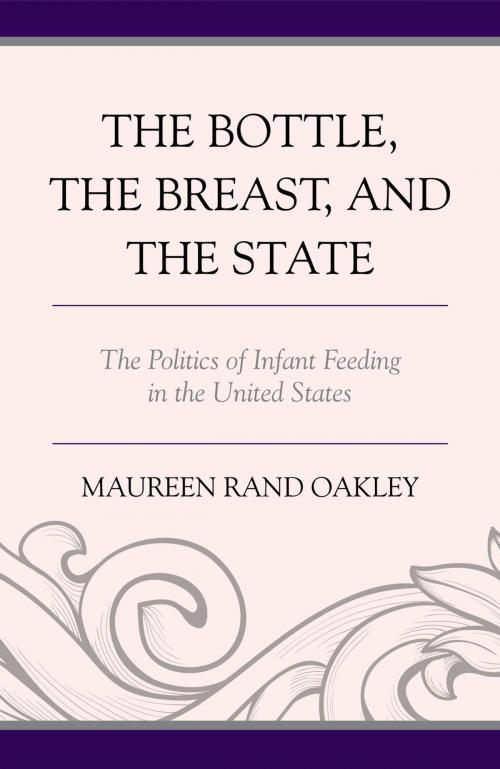The Bottle, The Breast, and the State
The Politics of Infant Feeding in the United States
Nonfiction, Social & Cultural Studies, Political Science, Government, Public Policy| Author: | Maureen Rand Oakley | ISBN: | 9780739191996 |
| Publisher: | Lexington Books | Publication: | July 1, 2015 |
| Imprint: | Lexington Books | Language: | English |
| Author: | Maureen Rand Oakley |
| ISBN: | 9780739191996 |
| Publisher: | Lexington Books |
| Publication: | July 1, 2015 |
| Imprint: | Lexington Books |
| Language: | English |
This books explores the ways in which breastfeeding is both promoted and made difficult in the United States, while the use of formula is both shamed and promoted. It uses a mix of qualitative and quantitative methods to explore the politics, policies, and individual experiences surrounding infant feeding. The analysis shows that a failure to separate the issue of breastfeeding rights and support from breastfeeding promotion and advocacy in both academic scholarship and public discourse has led to a deadlock that prevents groups from working together in support of breastfeeding without shaming. A caring infant feeding advocacy is developed. This approach values the caring work done by parents and recognizes the benefits of this work to society. It promotes policies supportive of parenting in general, and breastfeeding in particular, to remove barriers that may present a challenge to some women who may wish to breastfeed, while supporting the development of better alternatives for those who don’t.
This books explores the ways in which breastfeeding is both promoted and made difficult in the United States, while the use of formula is both shamed and promoted. It uses a mix of qualitative and quantitative methods to explore the politics, policies, and individual experiences surrounding infant feeding. The analysis shows that a failure to separate the issue of breastfeeding rights and support from breastfeeding promotion and advocacy in both academic scholarship and public discourse has led to a deadlock that prevents groups from working together in support of breastfeeding without shaming. A caring infant feeding advocacy is developed. This approach values the caring work done by parents and recognizes the benefits of this work to society. It promotes policies supportive of parenting in general, and breastfeeding in particular, to remove barriers that may present a challenge to some women who may wish to breastfeed, while supporting the development of better alternatives for those who don’t.















